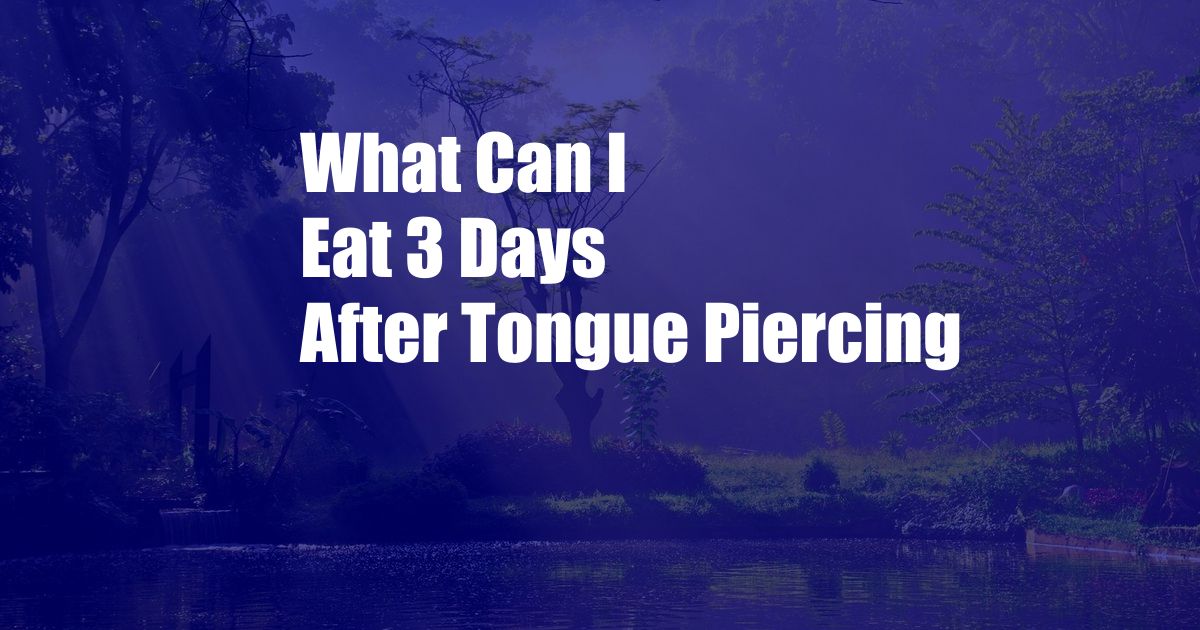
What Should I Eat 3 Days After Getting My Tongue Pierced?
Getting a tongue piercing is a fun and exciting way to express yourself, but it’s important to take care of it properly in order to prevent infection and other complications. One of the most important things you can do is to eat a healthy diet that will help your piercing heal quickly and easily.
In the first few days after getting your tongue pierced, it’s important to avoid foods that are hard, crunchy, or sticky. These foods can irritate your piercing and make it more difficult to heal. You should also avoid hot foods and drinks, as these can also irritate your piercing.
Foods to avoid after a tongue piercing:
- Hard foods, such as nuts, seeds, and candy
- Crunchy foods, such as chips and crackers
- Sticky foods, such as gum and candy
- Hot foods and drinks
Instead, you should eat soft, bland foods that will be easy to chew and swallow. Some good options include:
- Yogurt
- Pudding
- Applesauce
- Mashed potatoes
- Soup
- Oatmeal
You should also drink plenty of fluids to stay hydrated. Water is the best choice, but you can also drink juice, milk, or tea.
How long should I avoid these foods?
You should avoid these foods for at least the first 3 days after getting your tongue pierced. After that, you can start to introduce harder foods back into your diet, but you should still be careful not to irritate your piercing.
If you have any questions about what to eat after getting your tongue pierced, be sure to talk to your piercer or doctor.
Tips for eating after a tongue piercing:
- Eat slowly and carefully.
- Chew your food thoroughly.
- Avoid foods that are hard, crunchy, or sticky.
- Avoid hot foods and drinks.
- Drink plenty of fluids.
By following these tips, you can help your tongue piercing heal quickly and easily.
FAQs:
- Q: What are the best foods to eat after a tongue piercing?
- A: Soft, bland foods that are easy to chew and swallow, such as yogurt, pudding, applesauce, mashed potatoes, soup, and oatmeal.
- Q: How long should I avoid hard foods after a tongue piercing?
- A: For at least the first 3 days.
- Q: What are the signs of an infected tongue piercing?
- A: Redness, swelling, pain, discharge, and fever.
- Q: When should I see a doctor about my tongue piercing?
- A: If you have any signs of infection or if your piercing is causing you severe pain.
Conclusion
Getting a tongue piercing is a fun and exciting experience, but it’s important to take care of it properly in order to prevent infection and other complications. By following the tips in this article, you can help your piercing heal quickly and easily.
Are you interested in learning more about tongue piercings? If so, be sure to check out our other articles on the topic.